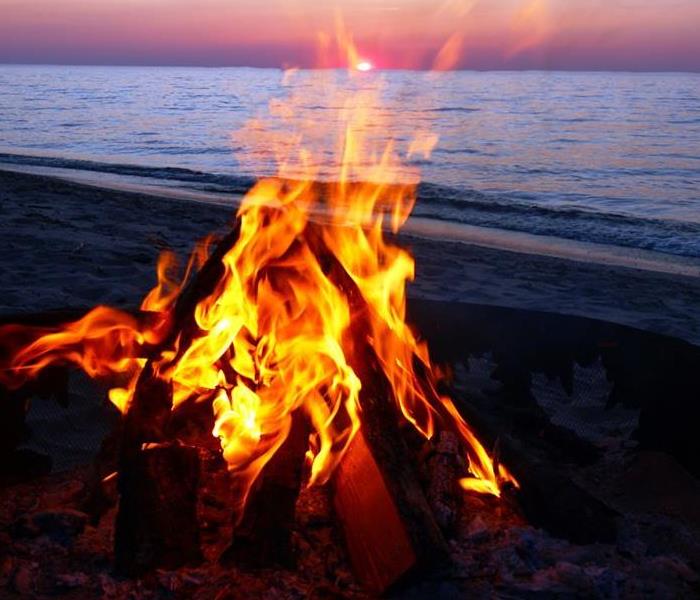Tips for being safe around fire this Summer
5/22/2018 (Permalink)
Summer weather means cookouts, Fourth of July fireworks, and all sorts of campfire fun!
Sure it can be a good time for all our fellow Beecher residents, but it’s also important to ensure that everyone stays safe by observing a few simple fire protection guidelines.
SERVPRO is glad to bring you tips from FEMA and the U.S. Fire Administration and the list of five summer fire safety tips:
- Keep a bucket of water handy. If an ember floats out of your fire pit, or a log falls down from your bonfire stack and sets nearby foliage, paper, or other flammable materials aflame, you don’t want to be scrambling for a way to put the fire out. Having a bucket of water nearby is a great first response tool to keep a fire under control.
- Supervise all fireworks (if fireworks are legal in your state, of course). Sparklers and pinwheels might seem “low risk,” but the reality is that there aren’t any fireworks out there that are safe enough for kids to use without adult supervision. It’s also important to ensure that no one tries to re-light fireworks that don’t work properly the first time. Dump these in a bucket of water and move on to the next package.
- Don’t let barbecue grease build up. Whether you’re using a charcoal or a gas grill, it’s important to keep it clean to prevent accidental grease fires caused by all of the gunk that can accumulate on a grill over time.
- Inspect the area around your BBQ and campfire. You don’t want to grill or light a campfire anywhere near other flammable materials. This includes deck railings, overhanging branches, dry grass or that pile of dry wood and recycling sitting in the back corner of your yard. If you’re camping, clear out the area immediately around your BBQ or campfire spot to be sure that there’s no scrub or brush nearby that could ignite if a spark lands on it.
- When you’re done with the fun, put out the flames. While it might seem romantic to fall asleep in front of a campfire, you really should dump water and/or sand on those embers before catching some shut-eye. The same goes for BBQs – close your propane valve and the unit’s lid, as well as any vents on a charcoal grill once you’re done. Unsupervised BBQs can easily tip over in the wind. A breeze can pick up and carry coals and embers from that campfire, dropping them where they can ignite dry grass, branches, trees or deck planks.





 24/7 Emergency Service
24/7 Emergency Service
